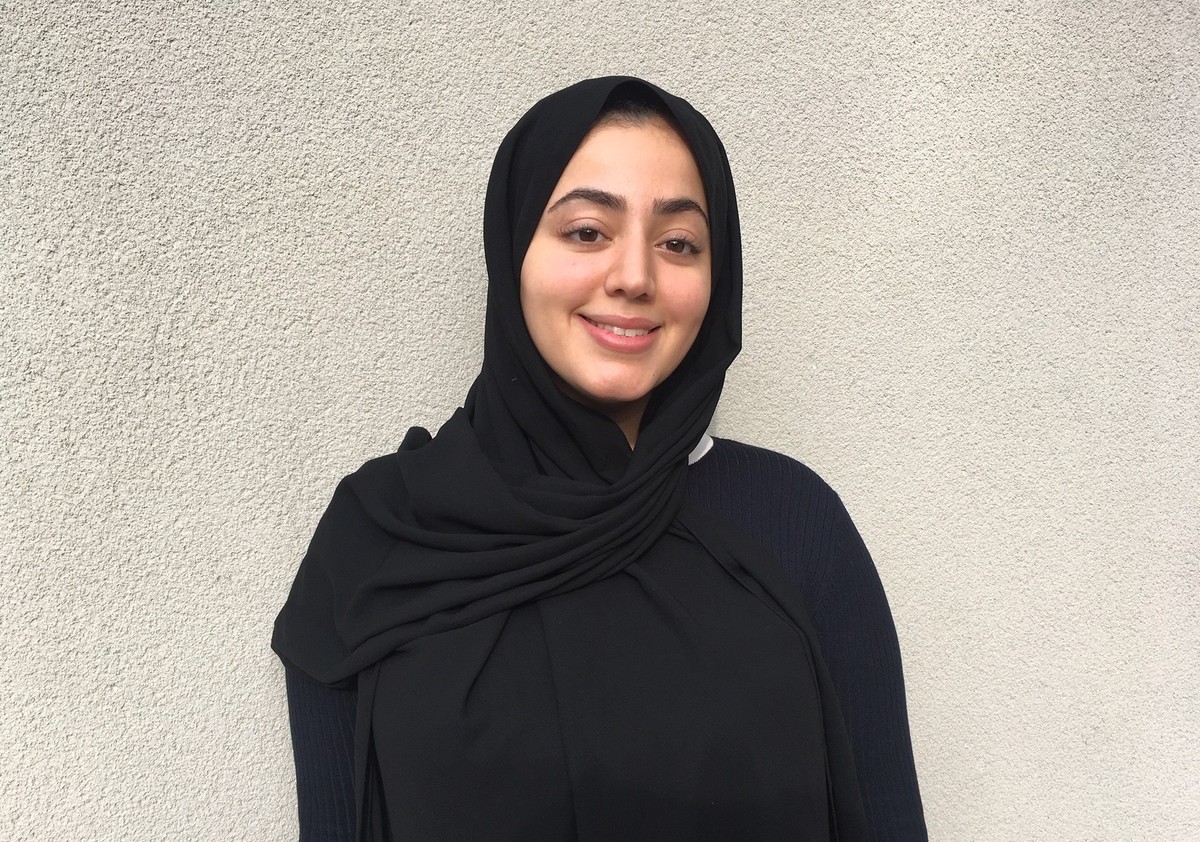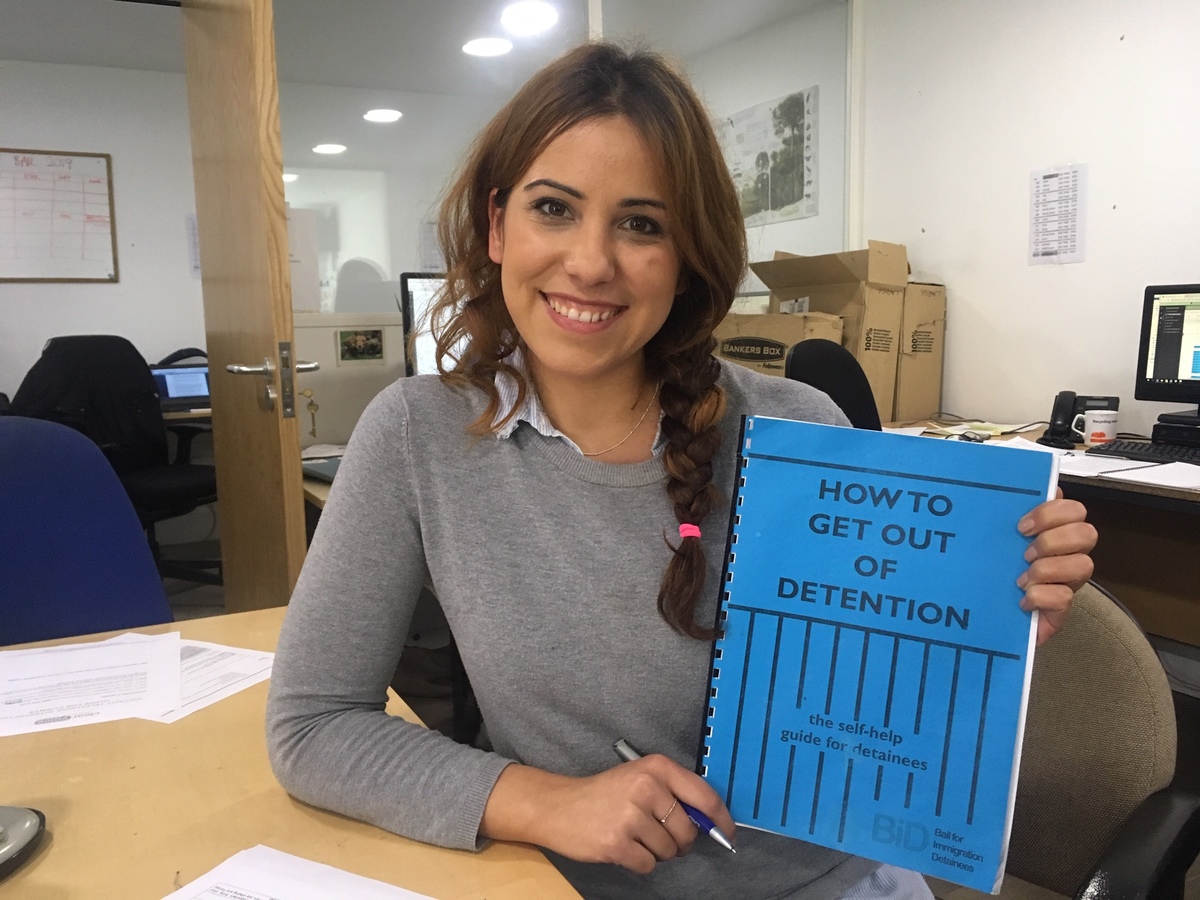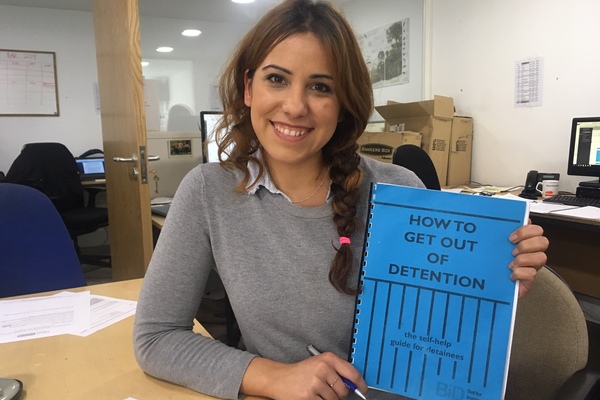Leila Chentouf is a caseworker at BID who, having graduated in law last summer, now spends most of her weekdays helping BID fight immigration detention.
On a normal day, she answers clients’ phone calls, helps out with legal advice, contacts probation officers and chases up evidence. Since her start at BID this January, she says she is consistently learning. Despite her migrant family background and her interest in immigration and human rights, she admits a lot of it is new:
“I really didn’t have a conceptual understanding of what immigration detention was.
“It’s a really inhumane process that these people have to go through. And to think that a lot of people come from backgrounds where they’ve escaped civil war or regimes where they’ve been tortured, some women have been trafficked in, some are victims of assault or domestic abuse, a lot of people have a family that they’re separated from.”

Leila believes that, despite immigration having become a hot topic in the news recently, immigration detention is not widely reported.
“IRCs [Immigration Removal Centres] are running, some are privately owned, there’s a whole enterprise surrounding it and I was really shocked that these things exist.
“Now, working for BID, it’s very different. Two weeks ago, I visited Yarl’s Wood, the women’s detention centre. Seeing that and being there was such an eye-opening experience. It’s so sad and it just gives you a greater incentive to help people and their cases.”
She values the fact that her work can have such an impact on people’s lives. The opportunity to help someone throughout the whole process is something she particularly enjoys at BID.
“There is a human aspect to the cases and you get really attached to the work that you’re doing.
“To liaise with people throughout the whole process for something like liberty is really rewarding.”
Leila hopes that all immigration detention centres are closed down in the near future. She believes there is no reason for them to exist and so she poses the question: “How can a government be opposed to someone’s liberty?”
Elena Marquez is a Spanish lawyer who moved to the UK four years ago. While working as an au pair and a waitress, she went from not knowing a word of English to completing a law Master’s degree. She now donates her time to BID’s mission to challenge immigration detention.

“I decided to help, first of all, because I am an immigrant too. I chose this field because I want to help people who have been living in a similar situation to mine.
“I couldn’t speak English at all when I came here, so I really feel like I can identify with them. I thought that at least at some point they would have some English lessons in the detention centre, because some of them can’t speak the language. They should at least be taught how to express themselves. But nothing at all.”
Elena visited Morton Hall Immigration Removal Centre recently and was struck by its atmosphere.
“It’s like a prison, absolutely. But you’re there just for being an immigrant, not a criminal.”
She believes the work BID does is essential in the way it provides legal advice and information which are not widely available at the IRCs.
“They might have some legal advice in the detention centre but it’s not enough. They need help, they are there and they don’t know why, they don’t know what has happened. It’s really frustrating to see.
“So BID’s work is really amazing. I think that we help a lot and that without us detainees would really struggle.”
As for the way immigration detention works in the UK, she’s adamant that it needs to change.
“When you are in prison, you have a sentence and you know you have to be there for one or two years. But in detention centres they are just stuck there.
“I didn’t imagine that something like this could happen nowadays, in the 21st century,” she states.
If you are interested in volunteering you can apply and read more information here on our website.





